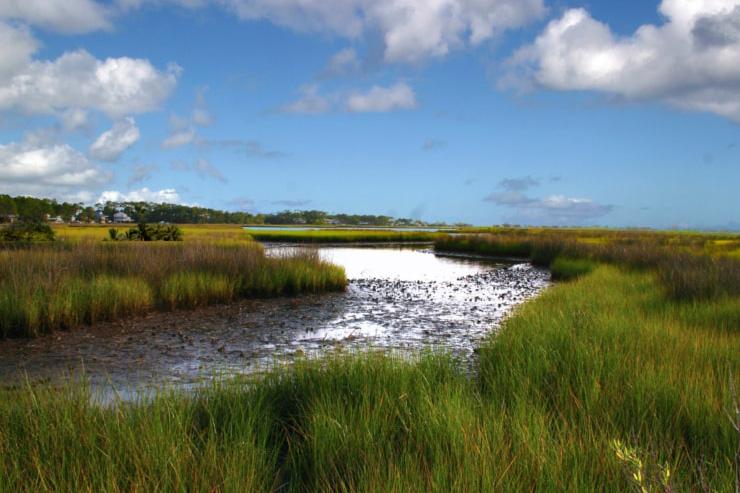Moving Mountains
Our latest podcast delves into the process of updating and modernizing the National Spatial Reference System.

The Inflation Reduction Act is a historic, federal government-wide investment that furthers NOAA’s efforts to build a Climate-Ready Nation. As part of this investment, NOAA will work with a variety of partners in coastal and Great Lakes communities to develop and support durable, local capacity to adapt to climate change impacts, while growing economies, protecting fisheries, addressing environmental justice, and developing a climate-ready workforce.

Nicole LeBoeuf, assistant administrator of NOAA’s National Ocean Service, reflects on the milestone anniversary of NOAA’s National Centers for Coastal Ocean Science and their mission to sustain coastal communities and economies through cutting-edge science and science-based solutions.

The Bipartisan Infrastructure Law is a transformational opportunity to make an impact against the climate crisis across the country through multiple funding opportunities. As part of this law, $1.467 billion is being invested to help coastal communities build the future they want to see. Investing in high-impact natural infrastructure projects that build coastal resilience, create jobs, store carbon, and restore habitat.
Marine debris is a large and global problem. Plastics, metals, rubber, fishing gear, and other lost and discarded items enter our ocean, Great Lakes, waterways, and coastal areas every day. This challenging problem can cause negative impacts to wildlife, the environment, and the economy. In this episode, we chat with our expert, Sophie Maginnes, communication specialist with NOAA’s Marine Debris Program.
NOAA's new Salish Sea and Columbia River Operational Forecast System (SSCOFS) expands geographic coverage beyond the existing model, offering comprehensive guidance to users in the Puget Sound, the San Juan Islands, the Strait of Georgia, and the Strait of Juan de Fuca, and the Columbia River up to Bonneville Dam.
In this video message Rachael Dempsey, NOS Deputy Assistant Administrator for Navigation, Observations, and Positioning, shares news on a historic investment in our national ocean observing system to enhance our nation's coastal resilience.
Aranzazu Lascurain, the Southeast and Caribbean regional lead for the Office for Coastal Management (OCM), is helping to implement the Coastal Zone Management Act within the region. Her position frequently takes her to the Caribbean, where she networks and shares information about funding opportunities and technical assistance — all to support the office’s mission of enhancing U.S. coastal resilience.
In this episode, we travel to Olympic Coast National Marine Sanctuary. Boasting rugged coastlines and encompassing over 3,000 square miles, this special place is home to a rich abundance of marine mammals, seabirds, fish, and invertebrate communities. We explore this area’s origins, maritime culture, and historical legacy, as well as ways you can dive into all our sanctuaries.
A team of NOAA and university sea level rise experts have verified 40 years of data to accurately assess flood-risk changes on the Atlantic, Caribbean and Gulf of Mexico coasts. Their findings have been published in the latest edition of Frontiers In Marine Science.